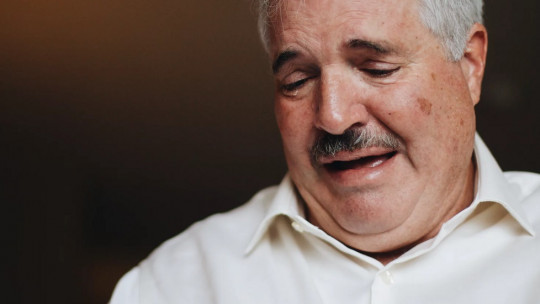
Christmas is coming; When I am on my way to the clinic in Marqués del Turia, I see that Valencia begins to be decorated, to be filled with lights, decorations, colors and joy.
Christmas is par excellence the time of year of peace and happiness, of getting together as a family to celebrate. However, For some people who have just lost a loved one, it can be a very painful time of year Everything we have around us invites us to have fun, to celebrate, to share joy, and yet for those who have recently suffered a loss, this festive atmosphere contrasts with the sadness that is felt and the pain that is suffered. Even people who are religious experience a great contradiction when celebrating the birth of Christ and the death of a loved one, it is a difficult moment without a doubt.
Therefore, these holidays represent a great challenge for these people who, faced with memories and intensified emotions, feel very sad about this loss and also have feelings of guilt.
Some of my patients tell me that laughing, having fun, or enjoying a celebration generates a great feeling of guilt and feelings faced constantly. During Christmas, it is very common for this feeling of guilt to appear and feel bad, because everything invites you to celebrate and enjoy with your family. If you or a family member or friend of yours are going through this situation, I would like to explain to you that there are some guidelines to help you manage the Christmas period in a more pleasant way.
Guidelines for managing Christmas in the face of the death of a loved one
These are some tips that help overcome the grief phase when we suffer from the loss of a loved one.
1. Talk and plan as a family what you are going to do
The first thing I would like to recommend to you is that if it is a direct relative, hold a family meeting to plan the holidays, what celebrations are going to be held and which ones are not going to be held, in case some do not want to be held, and agree on everything in family.
2. Let yourself be loved by others
Even if you find yourself empty, try to appreciate the signs of affection that other people give you and open your heart.
3. Let yourself go and enjoy these dates and the rest of the family, they need you too
Let yourself be carried away by the spirit of Christmas, peace and love, although it may seem hard on the one hand, on the other, it is a good scenario to face the loss, and go through that grief that we all have to go through when a family member leaves us. What better than to do it with family, in company, remembering him, and little by little overcoming the loss of him.
4. Create a reminder
Another guideline that works for many people is remember the person who is gone with a symbol For example, put a candle, frame a nice photo that we have of the person and put it in a visible place throughout Christmas, put an ornament on the Christmas tree that reminds us of the person, make a photo album and share it with the family during these days, etc.
5. Don’t avoid the topic
On many occasions people avoid naming the person because it hurts to talk about them, but It is beneficial to remember it, especially on these dates For example, before dinner, you can say a few words, or ask for a toast, or perform a special action for that person, such as saying a mass in their honor, for example.
6. Don’t feel bad for laughing, enjoying it with family or friends
Surely that person who is gone would want you to enjoy these moments and that you will remember her with joy.
7. Adapt this process to your needs
Despite all this I say, first of all you have to understand that Everyone needs their own grieving process, their own times, either in one way or another. There are people who need to cry and others do not, there are people who need to express their feelings and other people do not need to, or cannot, or decide to do so at another time.
Above all, everyone has to respect themselves and be patient with their own feelings. Little by little everything will return to normal, but you have to give yourself time In some cases, yes, grief becomes a process that cannot be overcome by oneself, and the help of a professional is needed. Please feel free to contact me if you have questions or need more information. A psychology professional can help you overcome stages that you may not be able to face alone.
I hope I’ve helped.








